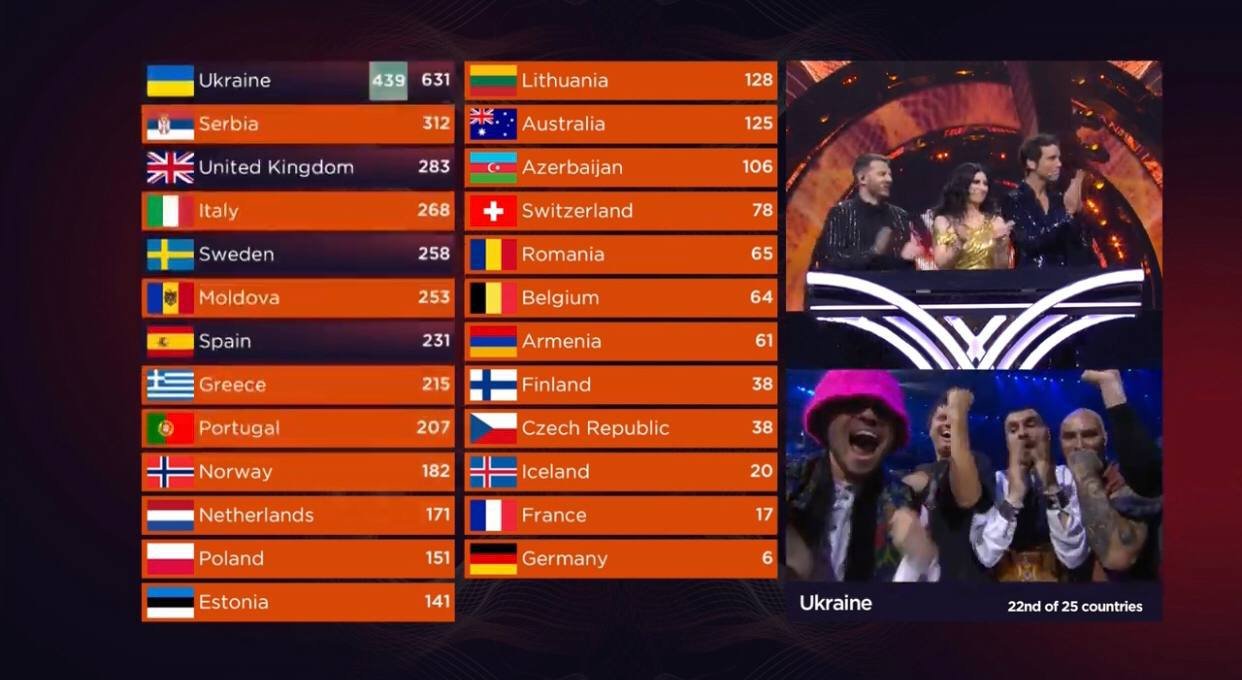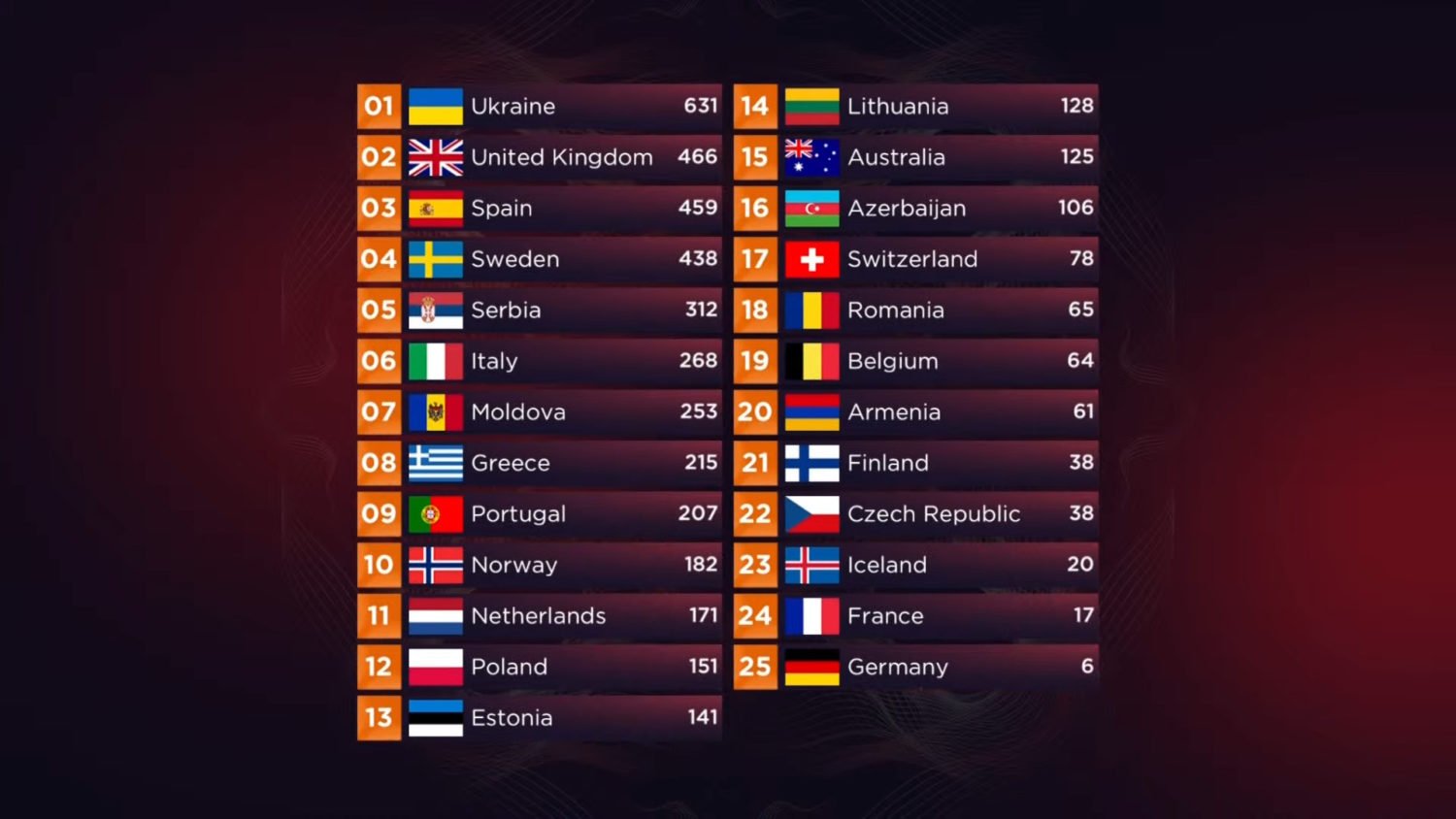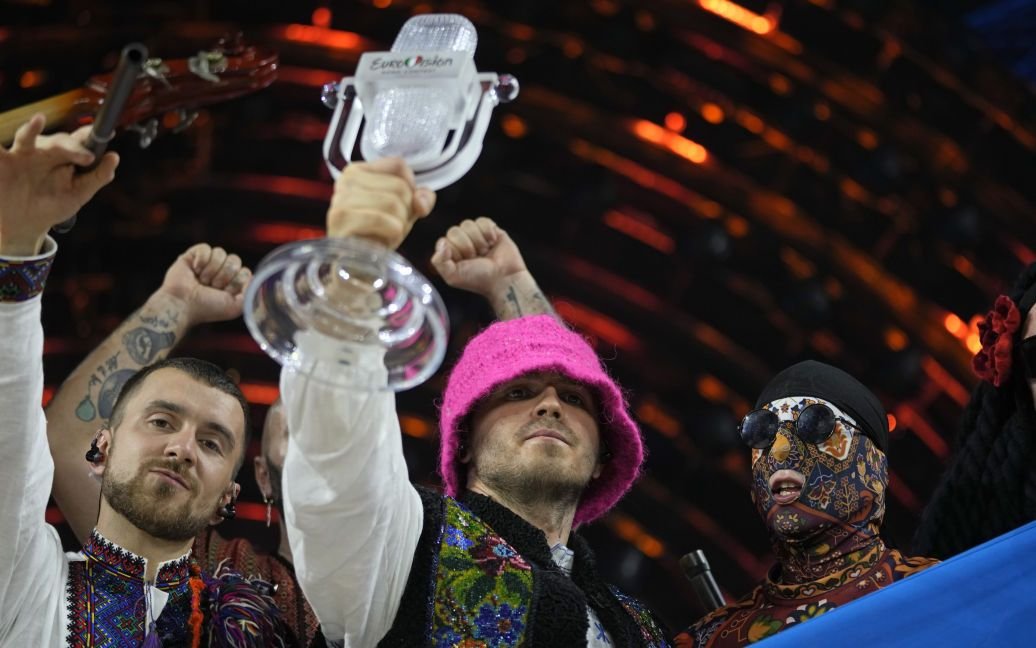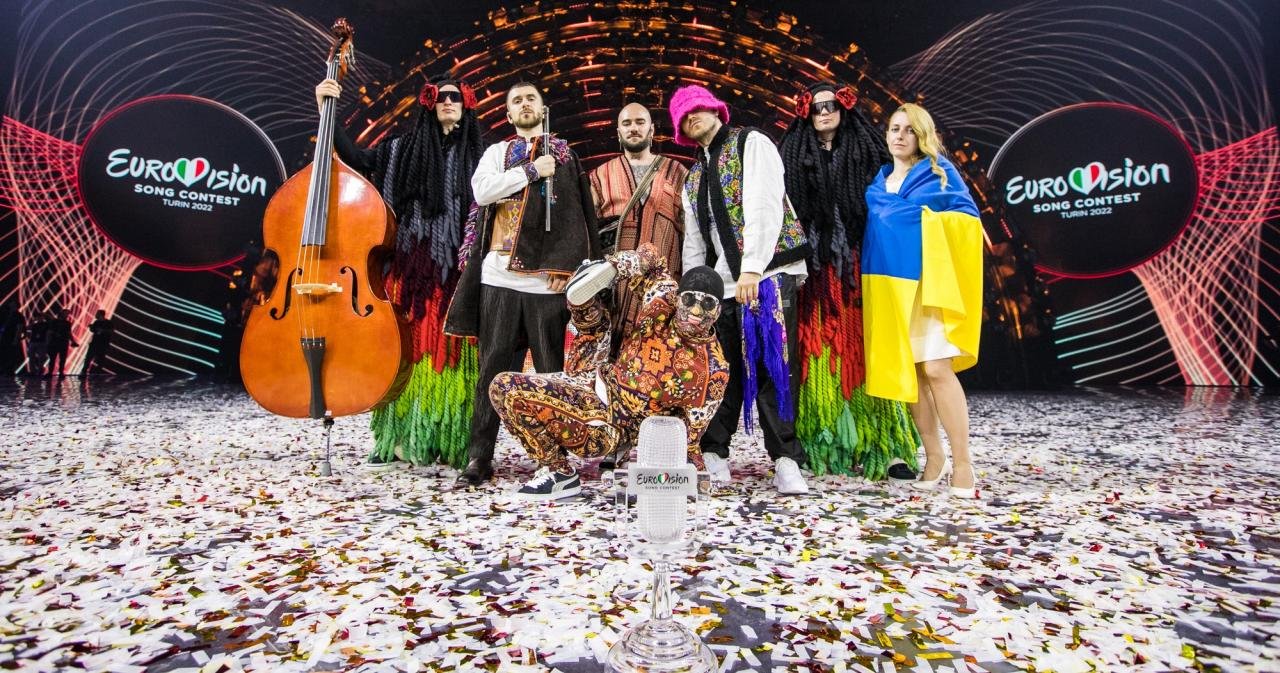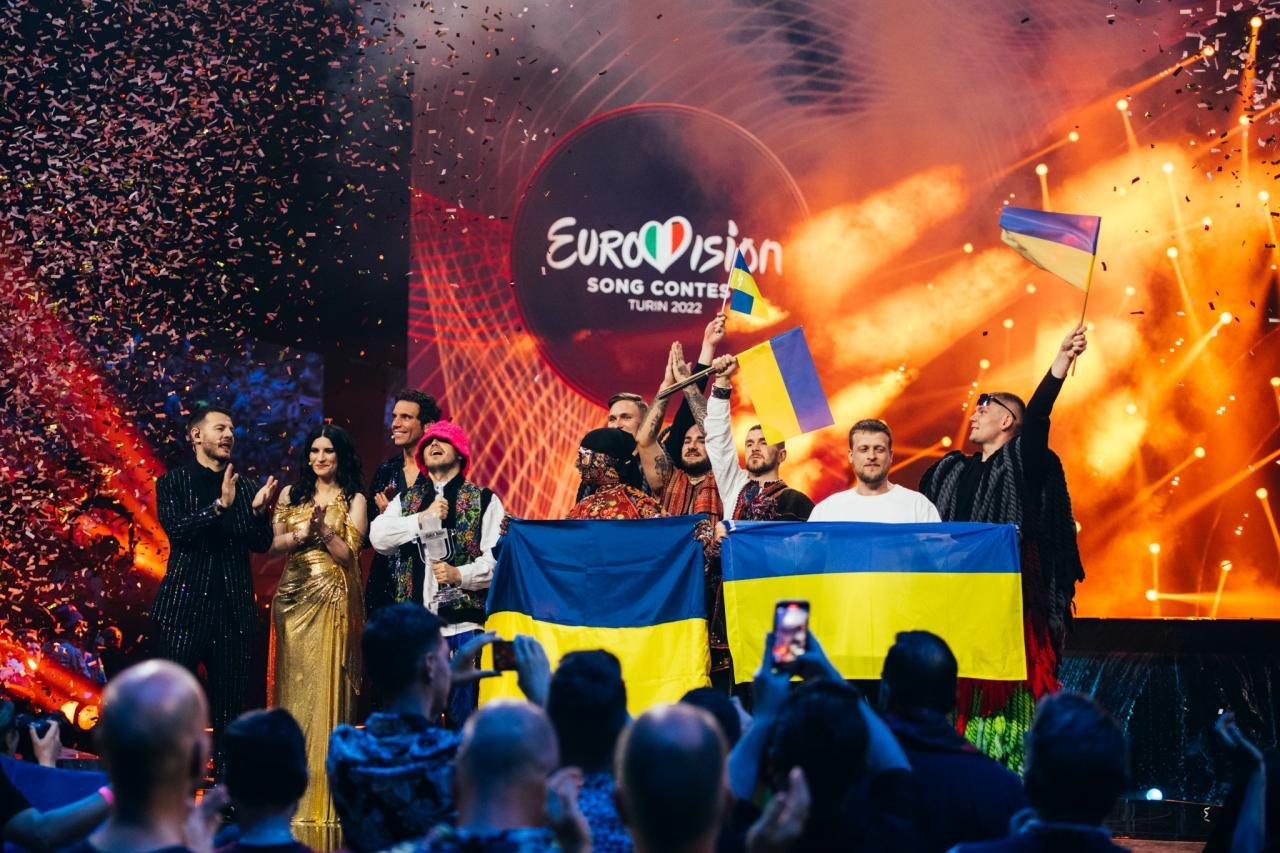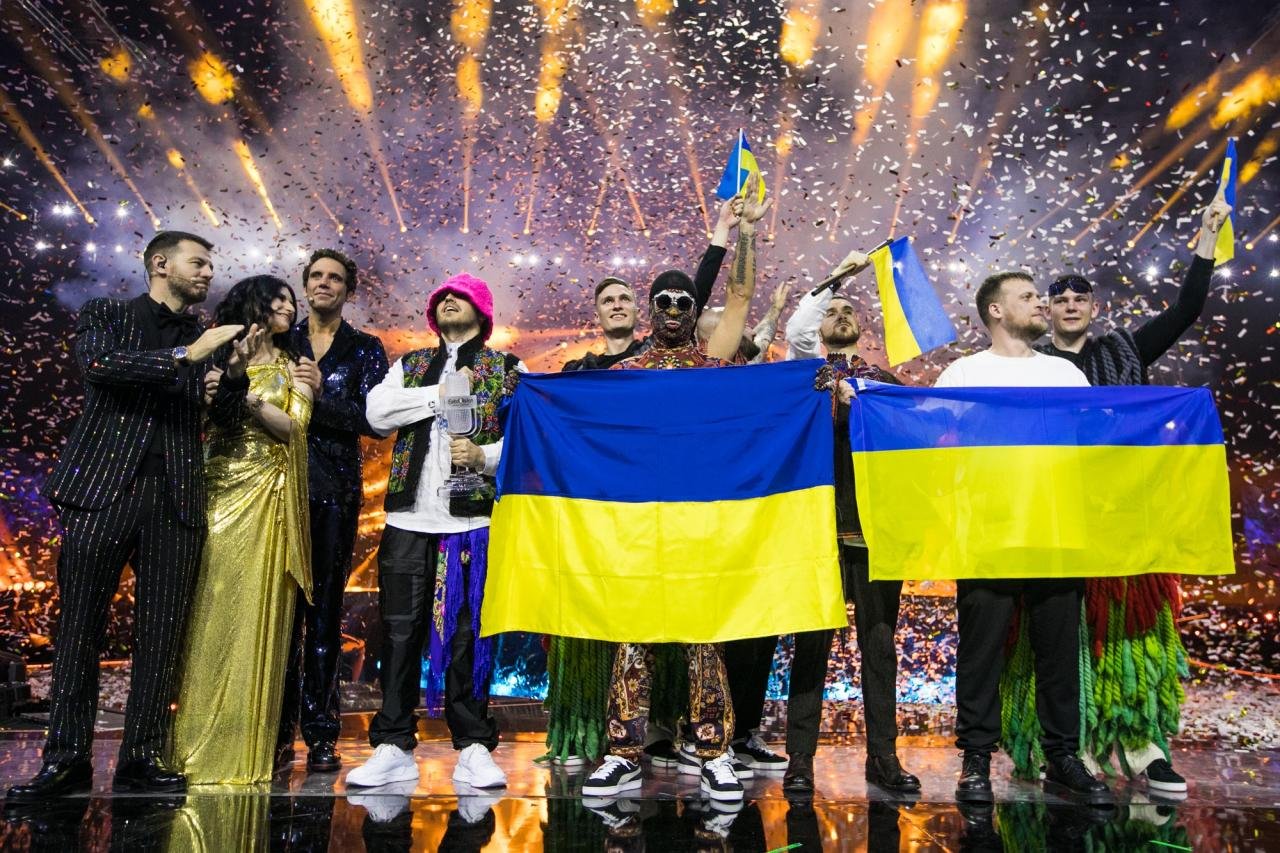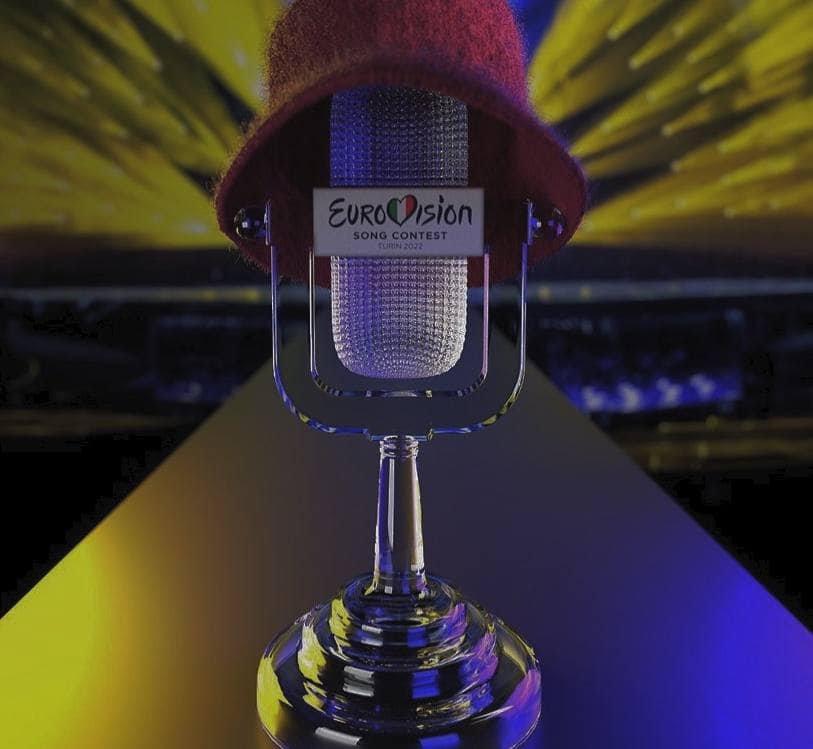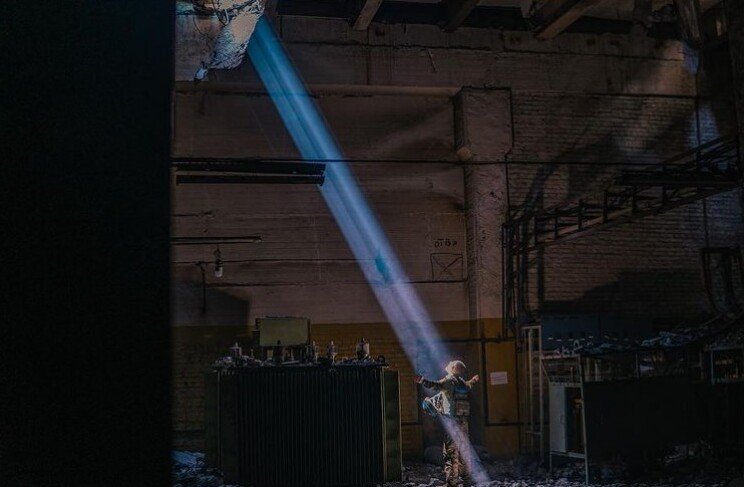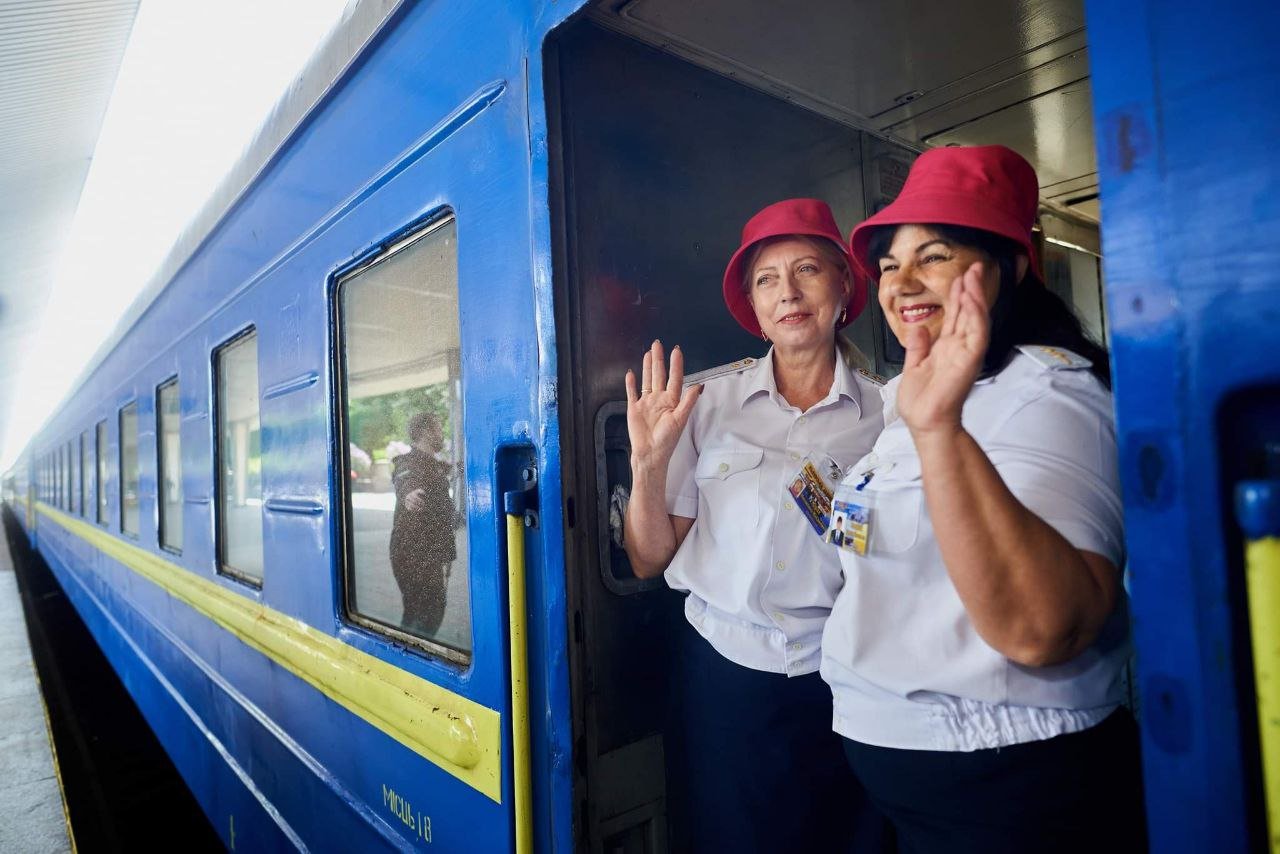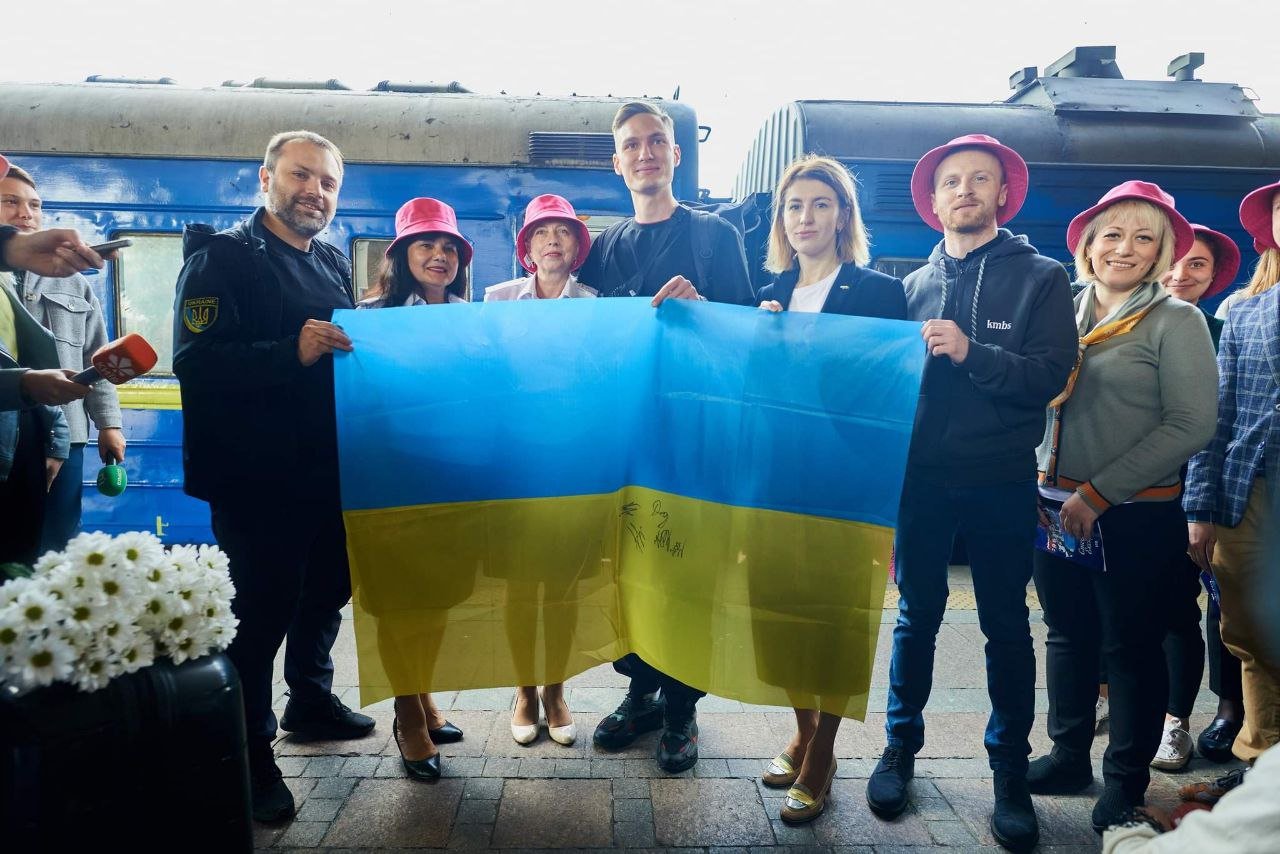Why Eurovision 2022 was not like any other
Ukraine’s Kalush Orchestra won the Eurovision Song Contest with a record-setting 439 points from the public (631 overall points). Not only is the result outstanding, but the timing and context of it are different from all prior Eurovisions. The overwhelming support from Europeans in what is most likely one of Ukraine’s darkest periods in history sounds like a message: War has no place in a civilized world.
Kalush Orchestra
The evening of the Eurovision Song Contest has always been something special for many Ukrainians like myself. We have always aspired to join the big European community, even beyond this grand song party. For years, the Grand Finale has been a good reason to gather in front of the screen, heatedly debate the voting, discuss over-the-top costumes and, of course, keep our fingers crossed for talented Ukrainian artists. That was before the war came.
A triumph in the darkest of times
Now not all of us are at home, and not all of us still have a home. Many of us are away from loved ones, and others have even lost some of them. Although, something has remained unchanged: We still believe in the victory of Ukraine. But now, this word has a much deeper meaning than simply placing first in a song contest.
Eurovision 2022 was about more than music, it was also about courage. Due to the war, Ukraine could have cancelled their participation in the contest or simply sent a video. However, the Kalush Orchestra, the Ukrainian band, decided to go to Turin in person. Despite the fact that they could rehearse the performance only online and from time to time they gave free concerts to support locals, like in the recently liberated Irpin. Moreover, the band could have been disqualified for an impassioned plea to the world to help free Mariupol and fighters trapped beneath the Azovstal* steel plant. But it was crucial not to keep silent and spread the truth to 200 millions viewers all over the world. This is exactly what Ukrainians expect from their representatives. We do need informational support, and it’s one of the ways to urge foreign governments to act boldly.
*Azovstal: is one of the largest steel rolling companies in Ukraine, located in Mariupol. Ukrainian military and civilians have been blocked there and staying beneath the plant under Russian attacks for two months without food and medicine support. The evacuation process is currently underway.
“Perhaps people don’t understand the extent of the grief in our country. I was willing to take a risk, but I couldnʼt miss the chance to say that”, stated Oleh Psiuk, the frontman of Kalush Orchestra after the Grand Final.
It is worth mentioning the courage of other participants, Malik Harris from Germany and the Icelandic band Systur, who despite the strict rules, came on stage with Ukrainian symbols, too. Later the organisers - the European Broadcasting Union (EBU) - announced that the artists' statements were of a humanitarian, not a political nature.
“Stefania”: A song for both mothers
But could Ukraine have won only because of politics and war? Not at all. Based on high positions in European music charts, it seems like the song "Stefania" also met the taste of the Eurovision fan community. Here’s what the band’s frontman Oleg Psiuk says about it: “Lately the song has been at number one according to [bookmakers]. But even before the war broke out, it was in the top five. We have been travelling all over Europe and have heard the song a lot. And we have really enjoyed this”.
Mother Stefania with the frontman of Kalush Orchestra Oleh Psiuk (Photo: Facebook / kalush.official)
Now thousands of likes are collected not only with the track "Stefania", but also by the official video, which the band released the day after winning the Eurovision Song Contest. It was filmed in Bucha, Irpin, Borodyanka, Hostomel, all cities near Kyiv that suffered the horrors of Russian occupation. According to Oleh Psiuk, initially the song was dedicated to his mother, and when the war broke out, the song took on a lot of new meanings. “Many people began to associate the song with mother Ukraine. Moreover, society began to call it the anthem of our war”, said Psiuk. Now the video has almost 11 million views. Psiuk also stated that “any victory is very meaningful to Ukraine these days, and since our culture is also under threat, we need to show that Ukrainian music is alive, and it has its very own sound and special signature”.
And it really is. Popularization of Ukrainian ethnic culture using folk singing and traditional instruments such as bandura, sopilka, trembita, etc., has been one of the trends of recent years among Ukrainian artists. It blends in well with the sounds of modern hip-hop, rock and electronic music. Eurovision is one of those venues where artists can collaborate with others, demonstrate features of their culture and take the music further west, as Jamala did for Ukraine in 2016, the band Go-A in 2021, and Kalush Orchestra in 2022. In addition, there are many other artists in Ukraine like Onuka, Marina Krut, Alina Pash, etc., who are worth listening to.
LIVE - Jamala - 1944 (Ukraine) at the Grand Final of the 2016 Eurovision Song Contest
What came after the win? – Ukraine is wearing pink panamas
Ukrainian fighter at the Azovstal (Photo: Instagram / kztsky)
Just as “Shchedryk” became an international success and a hallmark of Ukraine 100 years ago, today the Kalush Orchestra have made their own contribution to our cultural genetic code. The victory on the Eurovision stage gave Ukraine new confidence and shonea ray of light. Now “Stefania" is played in many peaceful public spaces, on the front line and even beneath Azovstal beneath the shelling.
In honour of the courage of Ukrainian artists at the Contest, one of Ukraine's trains was officially renamed the "Stefania Express". It runs between Kyiv and Ivano-Frankivsk.
Pink panama (bucket hats) have also become the trend of the season - an invariable attribute of the image of Kalush Orchestra frontman Oleg Psiuk. The band has even created their own limited collection of hats, selling them on Instagram for UAH 500 (approx. EUR 16).
The Kalush Orchestra released their own limited collection of pink hats (Photo: Instagram / panama.kalush)
Ukrposhta announced the release of a new stamp, honouring the victory of the Kalush Orchestra (Photo: Ukrposhta)
Some brands, chains of cafes, hotels and large companies have temporarily changed their logos, in particular, Kyivstar (one of the largest mobile operators), Ukrzaliznytsia (Ukrainian Railways), and Naftogaz (state gas company).
The Ukrainian postal operator even announced the release of a new stamp, honouring the victory of the Kalush Orchestra at the Eurovision Contest in 2022.
But will Ukraine be able to host the contest next year?
Currently, no applications for the transfer of the contest to other countries are being considered. President Volodymyr Zelenskyy hopes that it will be possible to host ESC in the rebuilt Mariupol. Kyiv mayor Vitaliy Klychko proposed to make the capital a venue again. In 2017, the city already hosted the Eurovision Song Contest and has all the necessary infrastructure. Meanwhile, on social media, people are suggesting the liberated Yalta, Lviv and Kalush in Ivano-Frankivsk region, the hometown of the band’s frontman, as host cities. This is the irony of fate, we have been spread all over the world, and next year the whole world will come to us.
The Eurovision Song Contest 2022 showed the world that culture cannot be wiped out by weapons; as little as it can dismantle the Ukrainian nation, in support of which stand all civilized countries. The triumph at the European Song Contest gave Ukrainians more confidence, because Europeans have shown solidarity and determination. Initially, you opened the borders and your homes to us in order to give us shelter from enemy shelling; and then you sent thousands of SMS’s in support of our country on the cultural front. In times of a mix of overwhelming despair and endless hope, it’s important to feel that we are not alone in this horror, that we are being heard, and that Europe is ready to stand together with us in all aspects. Ukrainians are grateful for every voice, and now we strongly believe that we have one more victory ahead - the most important one.
Bibliography & further readings
https://www.youtube.com/watch?v=YBAYsP7UOZk&t=3s – Press Conference after the Grand Final
https://www.instagram.com/panama.kalush/ - pannamas by Kakush Orchestra
https://youtu.be/Z8Z51no1TD0 - official video “Stefania
https://fb.watch/d3vhUEjZSD/ - train Stefania


